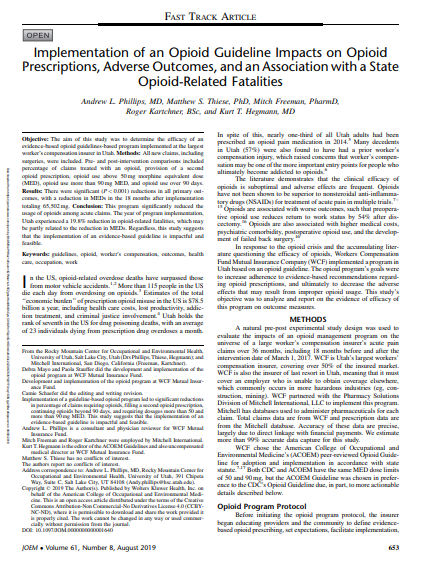Objective: The aim of this study was to determine the efficacy of an evidence-based opioid guidelines-based program implemented at the largest worker’s compensation insurer in Utah. Methods: All new claims, including surgeries, were included. Pre- and post-intervention comparisons included percentage of claims treated with an opioid, provision of a second opioid prescription, opioid use above 50 mg morphine equivalent dose (MED), opioid use more than 90 mg MED, and opioid use over 90 days. Results: There were significant (P < 0.001) reductions in all primary outcomes, with a reduction in MEDs in the 18 months after implementation totaling 65,502 mg. Conclusion: This program significantly reduced the usage of opioids among acute claims. The year of program implementation, Utah experienced a 19.8% reduction in opioid-related fatalities, which may be partly related to the reduction in MEDs. Regardless, this study suggests that the implementation of an evidence-based guideline is impactful and feasible.

